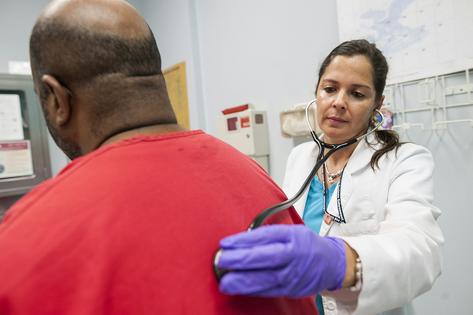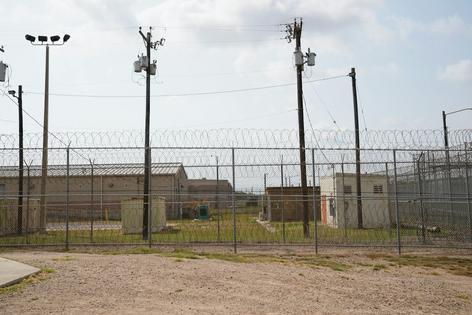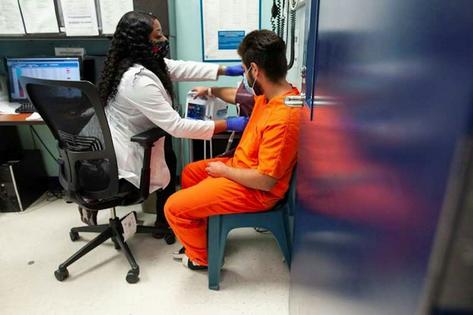ICE detainees suffer preventable deaths − Q&A with a medical researcher about systemic failures
Published in Political News
The 2024 Homeland Security appropriations bill increased funding for U.S. Immigration and Customs Enforcement operations to handle an anticipated daily detainee population of 41,500, up from an average of 34,000 in recent years.
Yet recent studies have exposed cracks that call into question the agency’s ability to medically care for the detainees it is entrusted with, including inhumane conditions, high suicide rates, structural problems such as the use of prisons to hold detainees, delayed or interrupted medical care and overcrowded conditions. Research also shows that the pandemic years further exacerbated these inequalities.
One recent report by a trio of nonprofit advocacy groups blames preventable deaths of people detained by ICE on inadequate investigations and flawed systems at the agency. The report, Deadly Failures, released on June 25, 2024, by the American Civil Liberties Union, American Oversight, and Physicians for Human Rights, documents inadequacies in diagnosis, treatment and emergency response. It points to suicides that might have been prevented with appropriate mental health care and properly managed medication. And it details underlying issues – understaffing and a lack of interpretation and translation services.
The Conversation asked Cara Buchanan, an emergency physician and clinical fellow in health policy and social emergency medicine at the Harvard Kennedy School, whose research the report cites, about research in this area by her team and others, ICE’s track record on detainee medical care and what needs to be done to improve medical care for people in ICE custody.
What have you and your colleagues found in studying medical care for detainees in U.S. Immigration and Customs Enforcement custody?
Our research shows that preventable deaths of people in ICE detention are often preceded by lapses in a standardized, consistent and competent approach to medical triage, including identification and escalation of the need for emergency care.
What has other recent research uncovered in this area?
Research across many disciplines, including medicine, law, policy, criminal justice, health economics, human rights and public health, correlate structural design features of immigration detention facilities to adverse health outcomes for detainees. This includes the use of solitary confinement, which is linked to an increased risk of self-harm for detainees in ICE custody.
The COVID-19 pandemic highlighted significant health disparities in immigration detention facilities. Many facilities failed to provide adequate basic, preventive and emergency medical care.
Studies also demonstrate a persistent lack of transparent information about conditions in ICE facilities that continues to prompt ongoing calls for increased oversight and accountability to address the systemic sources of poor health outcomes.
...continued













Comments